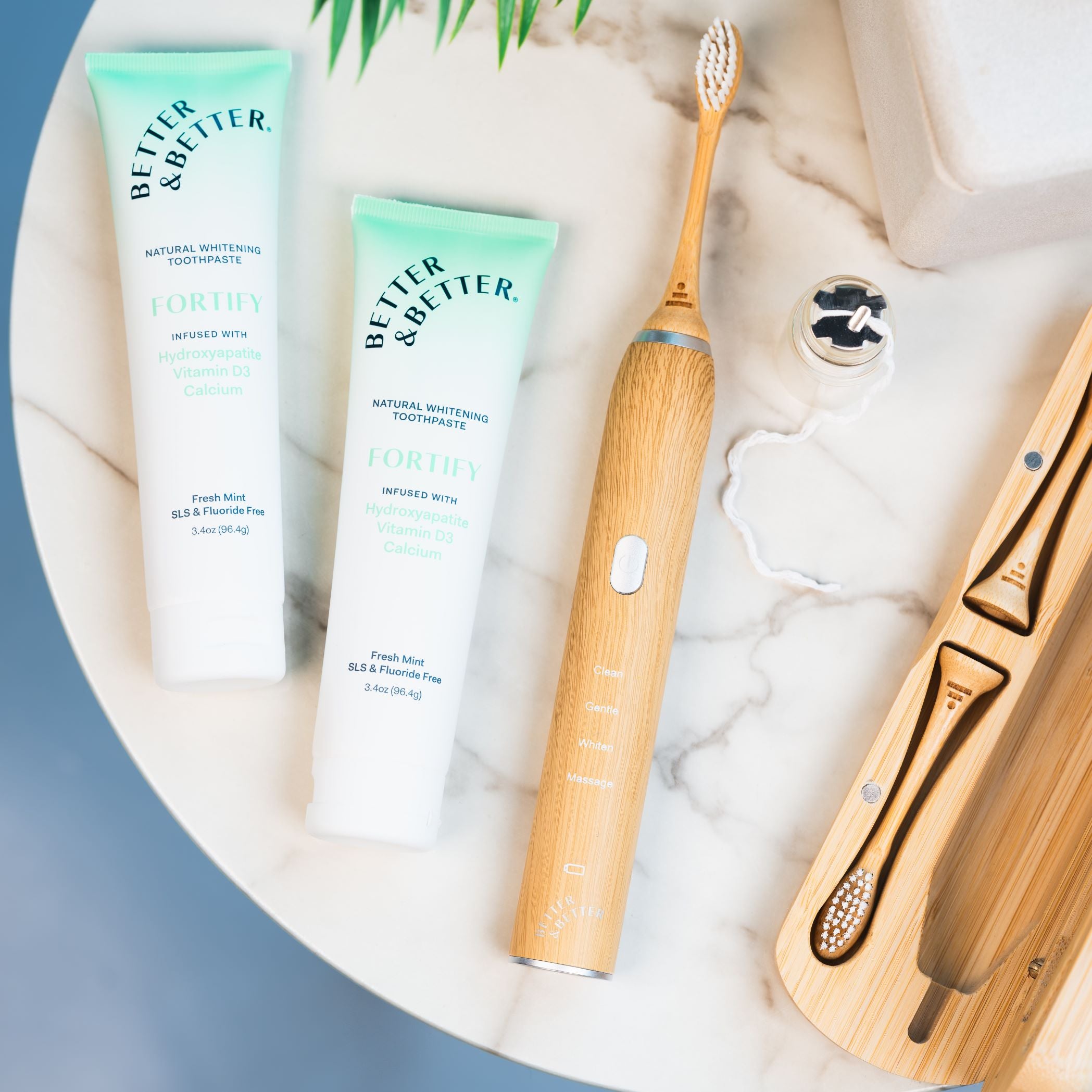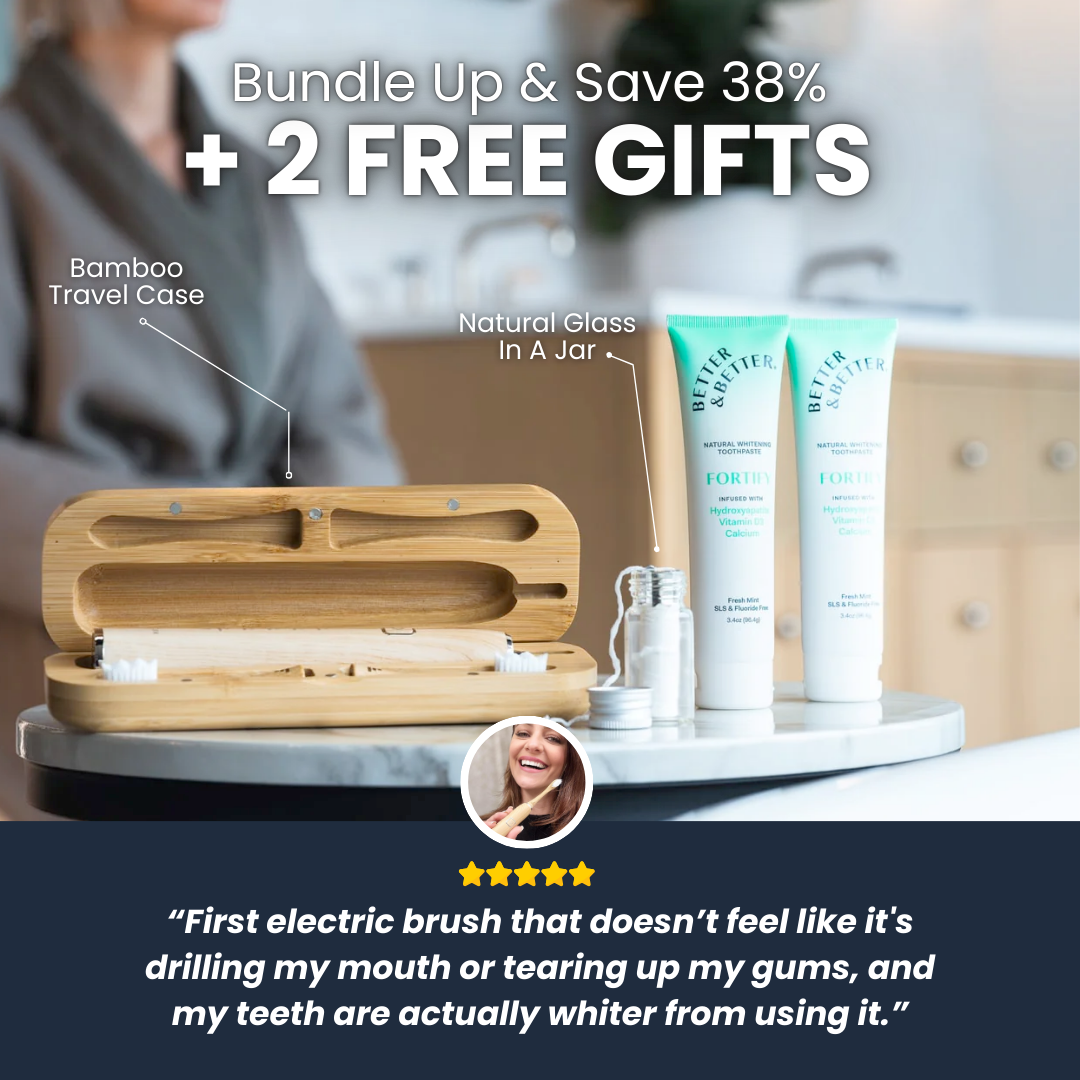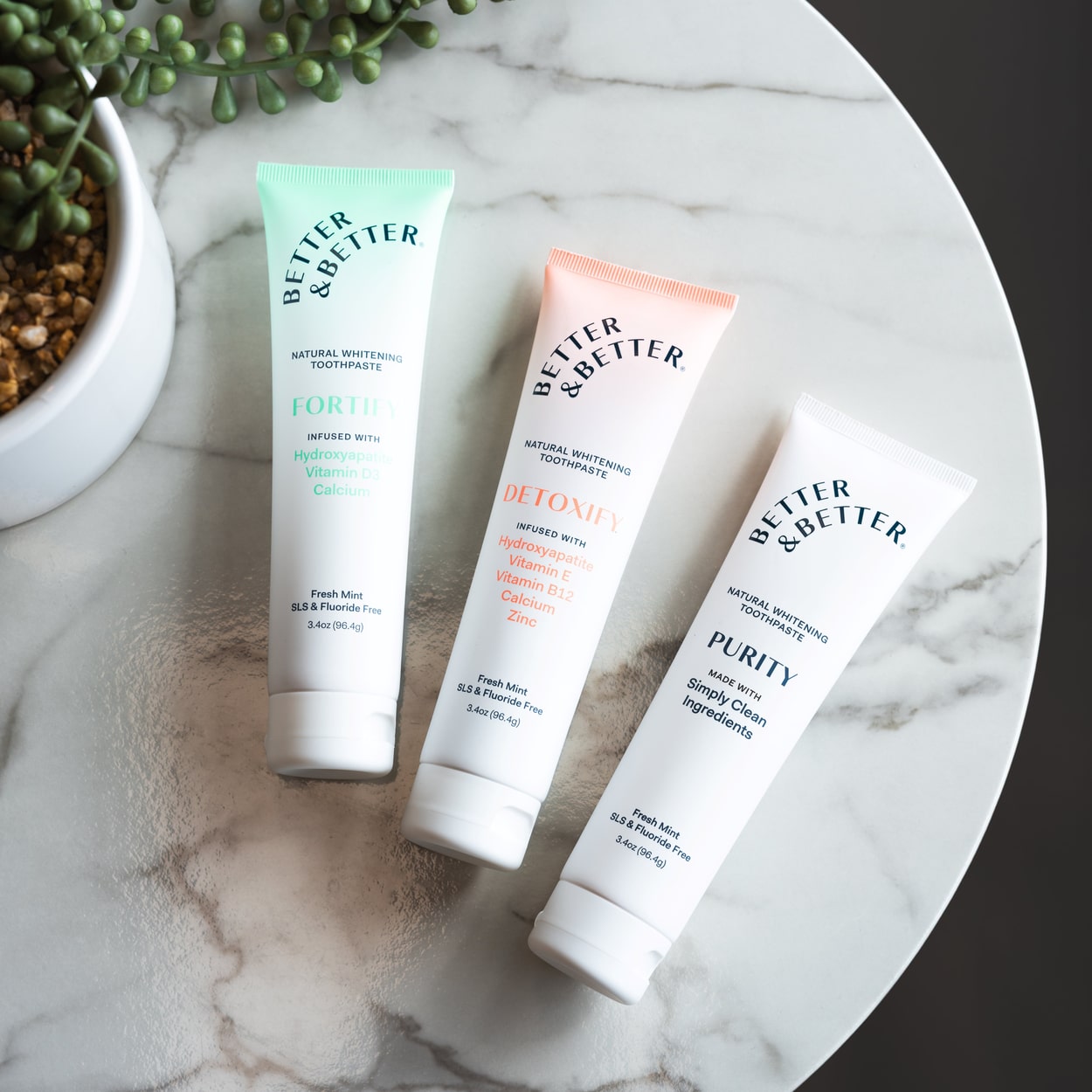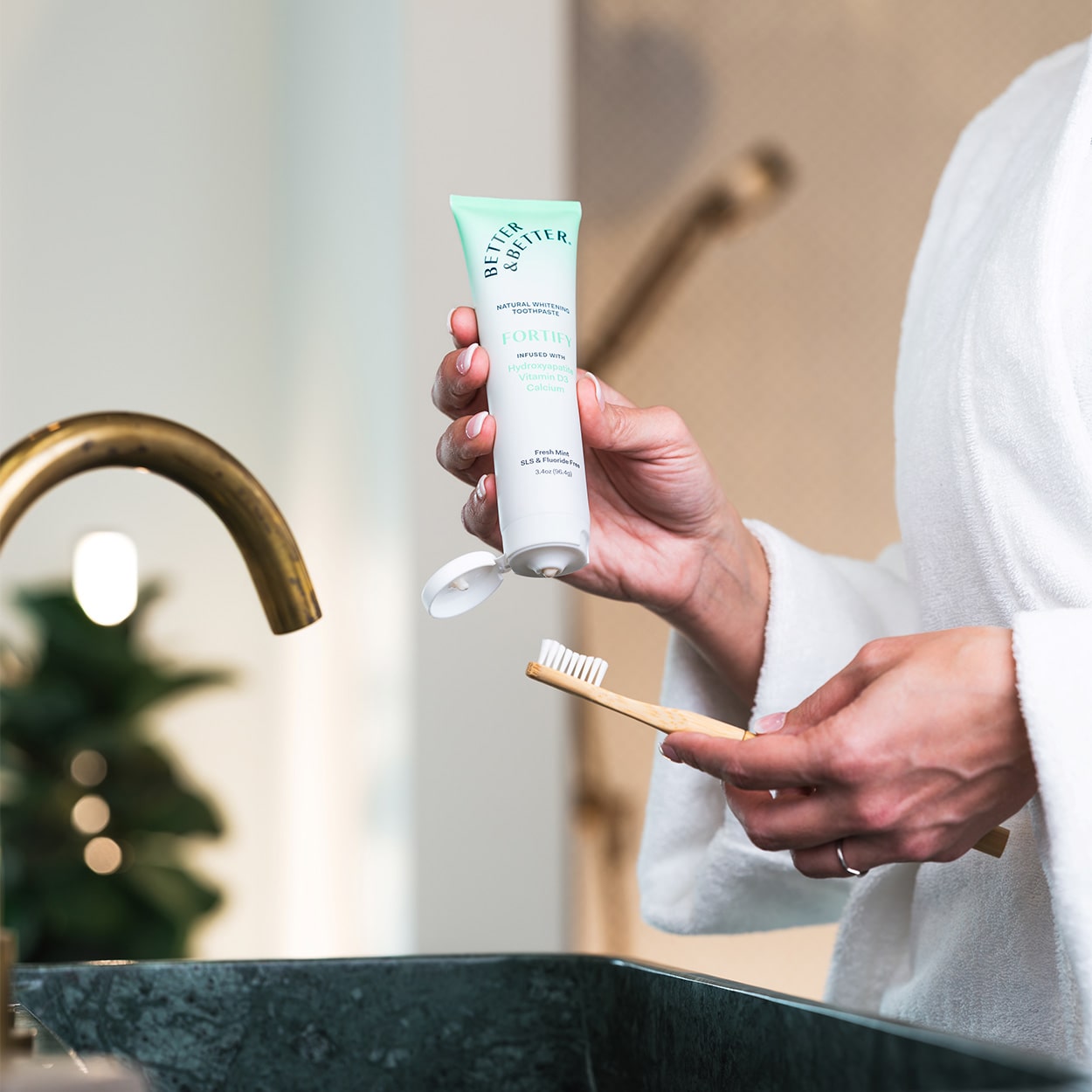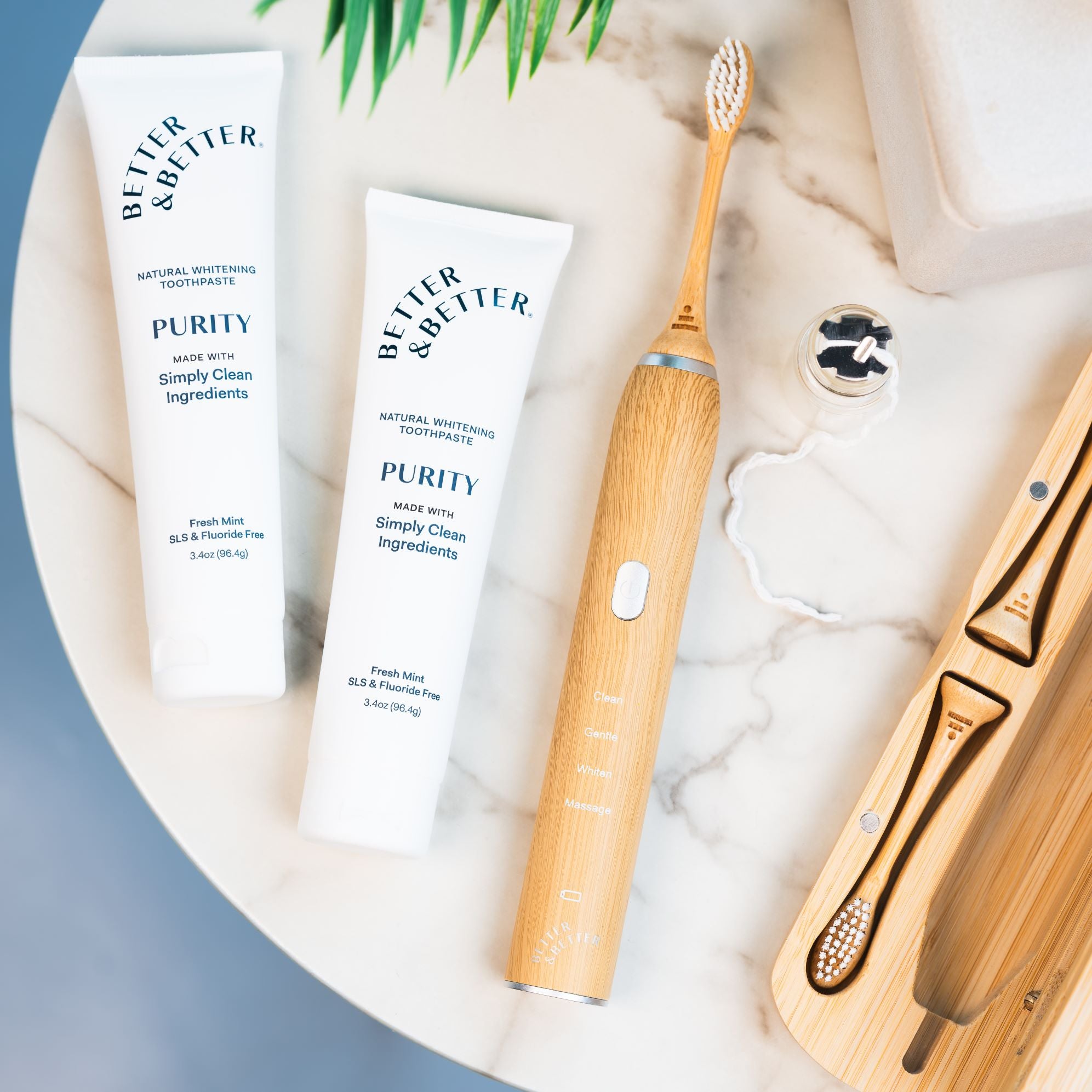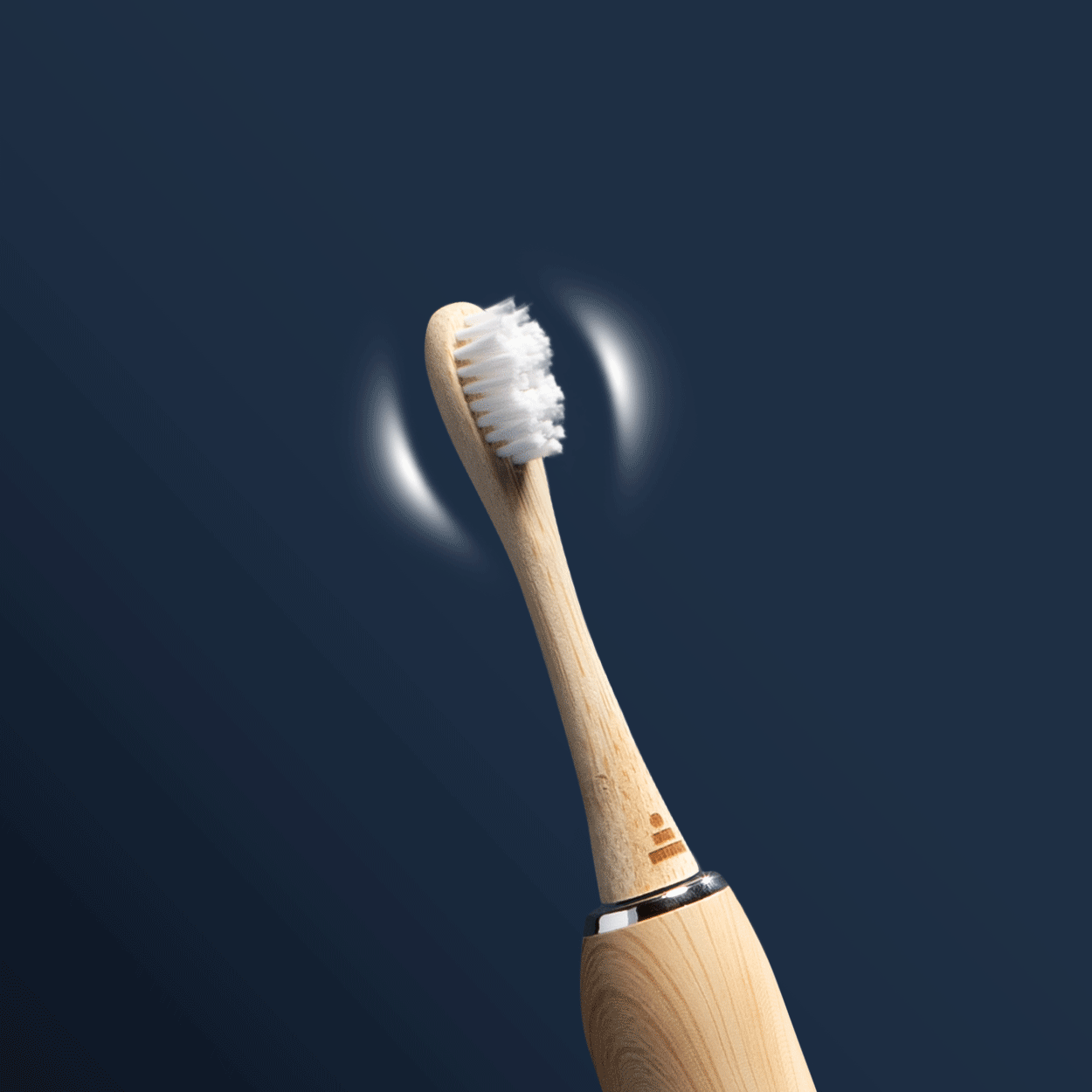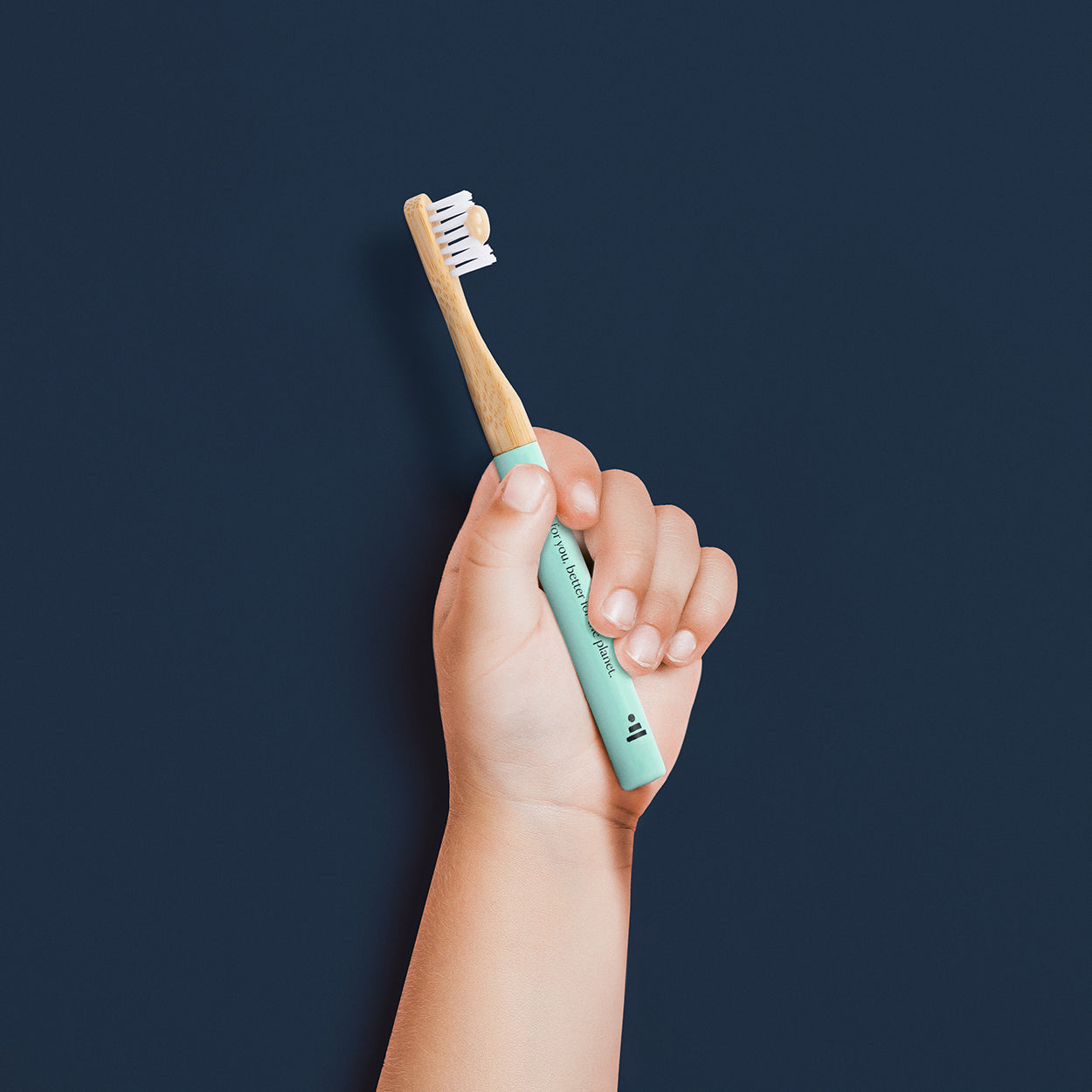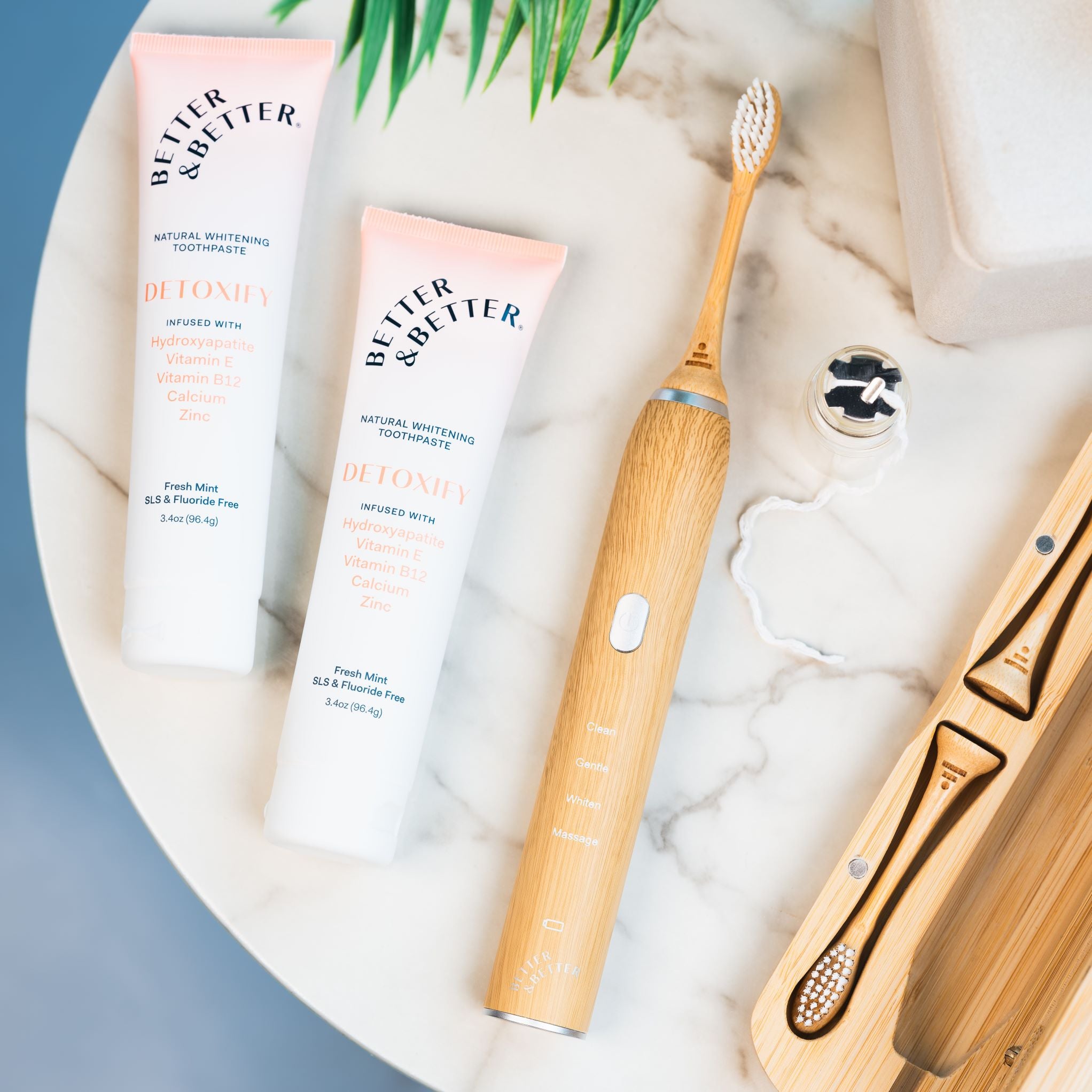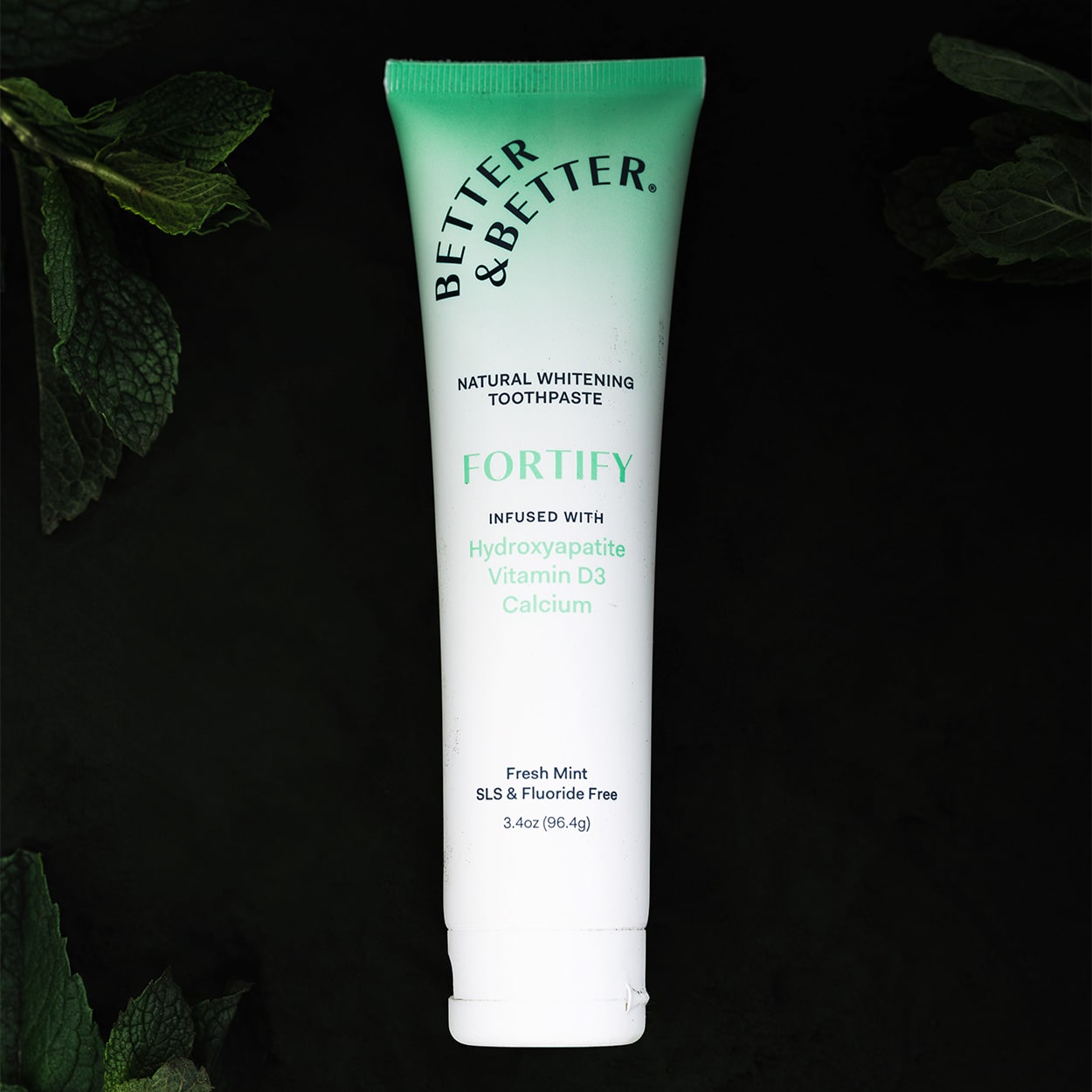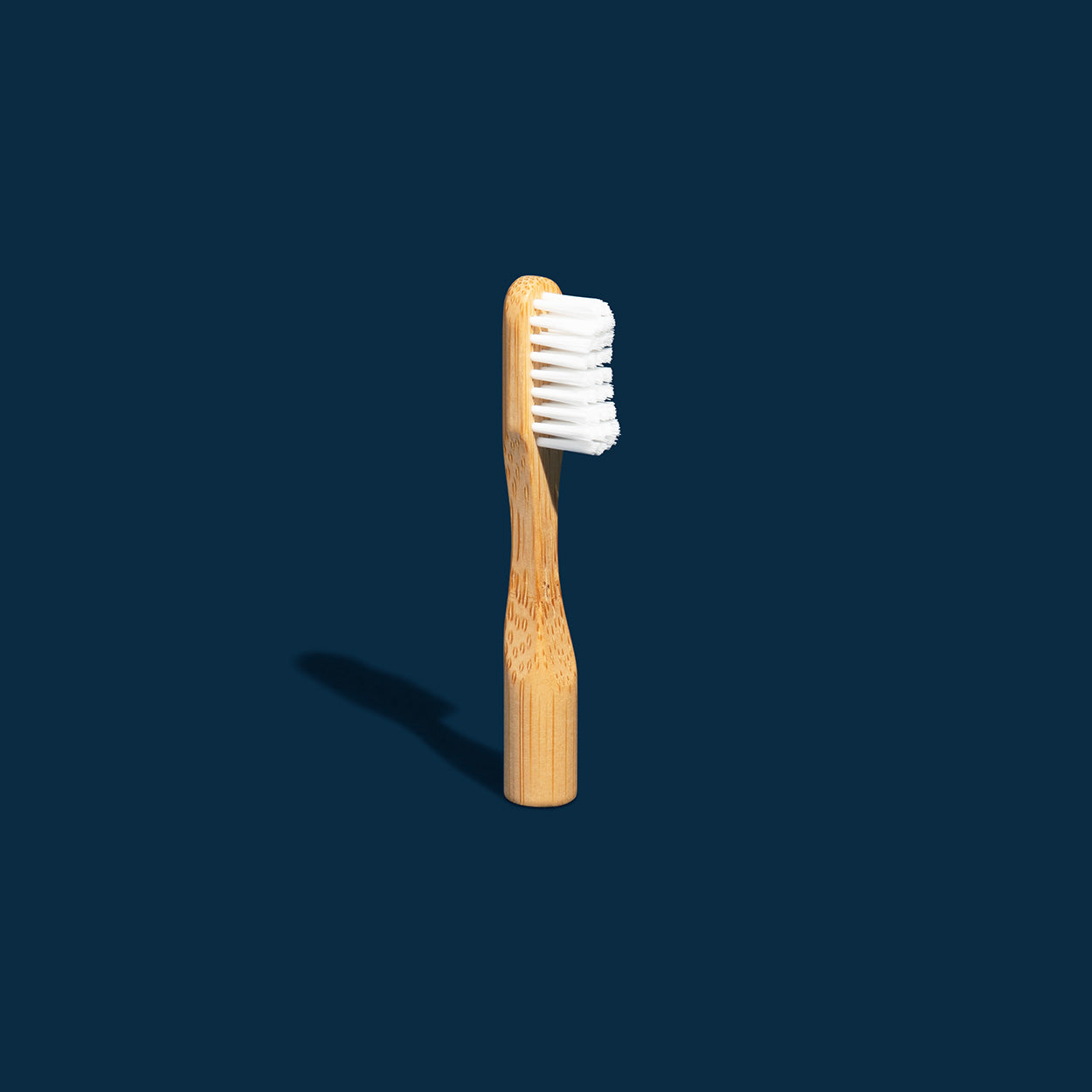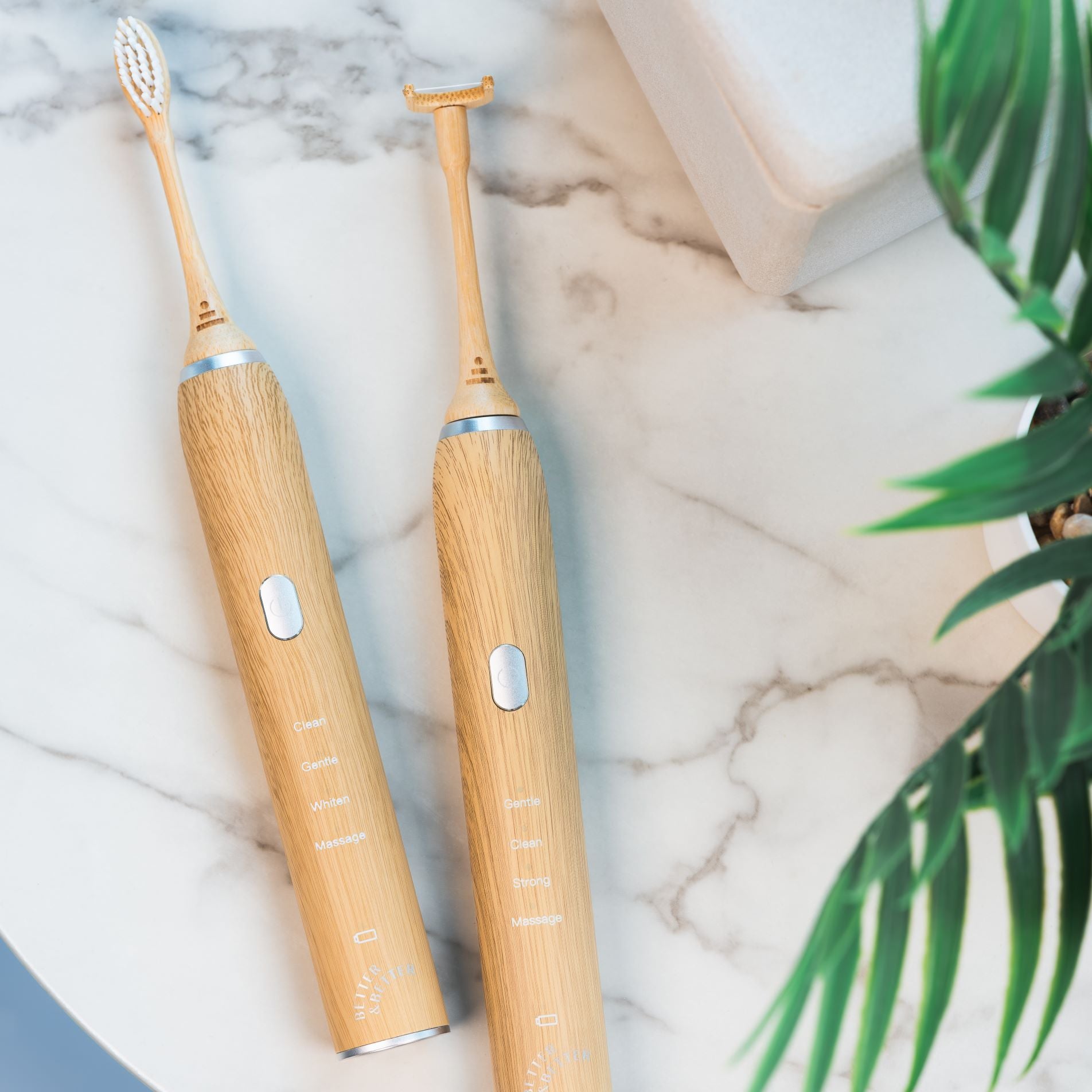Since the 1950s, fluoride has been the go-to ingredient for preventing cavities and tooth decay in America. Almost every tube of toothpaste at the supermarket lists fluoride as the active ingredient.
However, skepticism about its effectiveness and potential toxicity have sparked interest in a fluoride alternative: hydroxyapatite toothpaste.
Hydroxyapatite (HA) is a naturally-occurring mineral made of calcium and phosphorus. More importantly, hydroxyapatite is a building block for bones and teeth: it comprises 70-80% of the mass of your dentin and enamel.
Hydroxyapatite’s ability to naturally remineralize teeth makes it an ideal ingredient for toothpaste, and there’s data to back that up. Several studies have confirmed that hydroxyapatite is just as good—if not better—than fluoride for your oral health.
The name might be intimidating, but once you learn the benefits of hydroxyapatite you’ll see why it’s quickly becoming the new standard for oral hygiene.
What Is Hydroxyapatite Toothpaste?
Hydroxyapatite is an alternative to fluoride, which is the active ingredient in most standard toothpaste products. Hydroxyapatite is added to toothpaste to fight cavities, combat tooth decay, and promote tooth remineralization.
This might be the first time you’ve heard of hydroxyapatite, but it’s not new by any means. In fact, it’s one of the most-studied biomaterials in the world. Back in 1970, NASA (yes, that NASA) developed hydroxyapatite for astronauts whose tooth density decreased because of the lack of gravity in outer space.
In 1978, a Japanese company (Sangi Co Ltd) acquired the patent from NASA and produced the first commercial toothpaste with hydroxyapatite as the active ingredient. Since then, hydroxyapatite toothpaste has been the gold standard for oral health in Japan.
How Does Hydroxyapatite Toothpaste Work?
When your teeth are exposed to bacteria, they lose two essential minerals: calcium and phosphate. This is known as demineralization. Hydroxyapatite replenishes these minerals—that’s called the remineralization process.
As you brush with hydroxyapatite, your teeth absorb the minerals down to the root, which enables your teeth to remineralize from the inside out.
Let’s contrast that with the way fluoride toothpaste works.
When you brush with fluoride, it mixes with the calcium and phosphate ions in your saliva. This creates a film called fluorapatite which sticks to your teeth. Think of it like a dental Band-Aid that protects against cavity-causing acid and bacteria.
Bottom line: hydroxyapatite protects your teeth just as well as fluoride, but it benefits your entire tooth structure and doesn’t depend on saliva to work its magic.
5 Benefits of Hydroxyapatite Toothpaste
Hydroxyapatite is quickly becoming a popular alternative to fluoride—and for good reason. Let’s dive into five advantages you get with hydroxyapatite toothpaste.
1. Hydroxyapatite Is Biocompatible
Biocompatible is a fancy way of saying your body recognizes the material it comes in contact with. Since the bulk of your enamel and dentin are literally made of hydroxyapatite, your teeth naturally know how to make use of this mineral.
2. Hydroxyapatite Prevents Cavities
A 2019 study published in Nature found that hydroxyapatite toothpaste was equally effective as fluoride toothpaste for preventing and repairing cavities, or “caries.”
A similar study published in the Journal of Nanobiotechnology concluded that brushing with hydroxyapatite toothpaste was a valuable way to fight cavities, especially since it eliminates potential side effects of fluoride like fluorosis.
3. Hydroxyapatite Reduces Tooth Sensitivity
If you struggle with sensitive teeth, hydroxyapatite toothpaste could be the key to relief.
In this 2014 study, subjects with oral hypersensitivity were either given hydroxyapatite toothpaste, fluoride toothpaste, or a placebo. After two weeks, the subjects who brushed with HA toothpaste significantly decreased their cold air sensitivity and tactile sensitivity compared to the other groups.
This is likely because hydroxyapatite reinforces dentin, the softer layer of your teeth that can become sensitive if it’s exposed.
4. Hydroxyapatite Strengthens Teeth
Hydroxyapatite has a unique ability to bond to your teeth and form a protective coating. Over time, hydroxyapatite deposits a new layer of calcium phosphate minerals on the tooth surface which replicates the structure of enamel.
Researchers suggest the protective barrier formed by hydroxyapatite is actually stronger than the barrier formed by fluoride.
Remineralization is especially important if you sip on sparkling water and other carbonated beverages, which have the potential to erode enamel.
5. Hydroxyapatite Is Non-Toxic
Recent research suggests that fluoride is a neurotoxicant (a toxin that harms the brain). A 2017 report found that fluoride exposure during pregnancy correlated with poorer cognitive function in children later in life.
That’s a major reason people are turning to fluoride-free toothpaste, especially since there are safer alternatives available. “It’s not disputed that fluoride is toxic at high levels,” Christine Till, a neuropsychologist, told Nature.
Excess fluoride exposure has been linked to several health issues, including:
- Dental fluorosis: a condition that leaves white streaks on the teeth
- Skeletal fluorosis: a condition that hardens the bones and increases the risk of fractures
- Cardiovascular problems like arteriosclerosis and high blood pressure
- Thyroid dysfunction
- Reproductive issues
There’s currently no evidence that hydroxyapatite is toxic or has any negative side effects. That’s largely because HA is naturally present in your body, whereas fluoride isn’t.
Hydroxyapatite vs. Fluoride Toothpaste: Which Is Better?
Research consistently shows that hydroxyapatite and fluoride are equally effective at preventing cavities. However, that’s not the only factor that determines what makes a toothpaste “better.”
For starters, hydroxyapatite doesn’t pose any threats to your health, unlike fluoride might. You shouldn’t have to brush your teeth with something that has a poison control warning label (we’re looking at you, leading toothpaste brands).
Hydroxyapatite is also a better option if you have sensitive teeth. Lastly, hydroxyapatite toothpaste is ideal if you have a dry mouth since it doesn’t depend on saliva production to work like fluoride does.
Fluoride toothpaste is one of the greatest achievements in modern dentistry, but that doesn’t mean we shouldn’t strive for better ways to take care of our teeth.
Nano-Hydroxyapatite vs. Micro Hydroxyapatite
If you go down the hydroxyapatite rabbit hole, you’ll notice there are two types: nano hydroxyapatite (n-HA) and microcrystalline hydroxyapatite, or simply micro hydroxyapatite.
Nano-hydroxyapatite is a synthetic version of hydroxyapatite (the material your teeth are made of). It’s engineered to be tiny so it can penetrate the openings in tooth enamel. Nanoparticles like n-HA have their benefits, but they can also pose risks to the health of people—and the environment. That’s why they’re a divisive subject for the European Union.
Another drawback is that regulations don’t permit high concentrations of n-HA in toothpaste. Accordingly, nano-hydroxyapatite toothpaste might not contain as much of the active ingredient as micro hydroxyapatite toothpaste.
Micro hydroxyapatite particles are derived from all-natural materials instead of being made synthetically. Despite being slightly larger than n-HA particles, a 2021 study found that micro hydroxyapatite toothpaste prevented more cavities than fluoride toothpaste.
Oral Care Is Due for An Upgrade
Fluoride shifted the paradigm of oral healthcare and prevented a ton of cavities over the last 60+ years. Unfortunately, toothpaste hasn’t progressed much since fluoride made its way into the oral care aisle.
We don’t rely on the same phones, cars, and medications from the 1950s (thankfully). So why would we treat our teeth any differently?
Give our Fortify Toothpaste a go. It’s made with natural, micro hydroxyapatite and 100% vegan ingredients. But we’re also proud of what we left out of our formula: say goodbye to parabens, sulfates, SLS, and artificial sweeteners—and say hello to a better way to brush.



